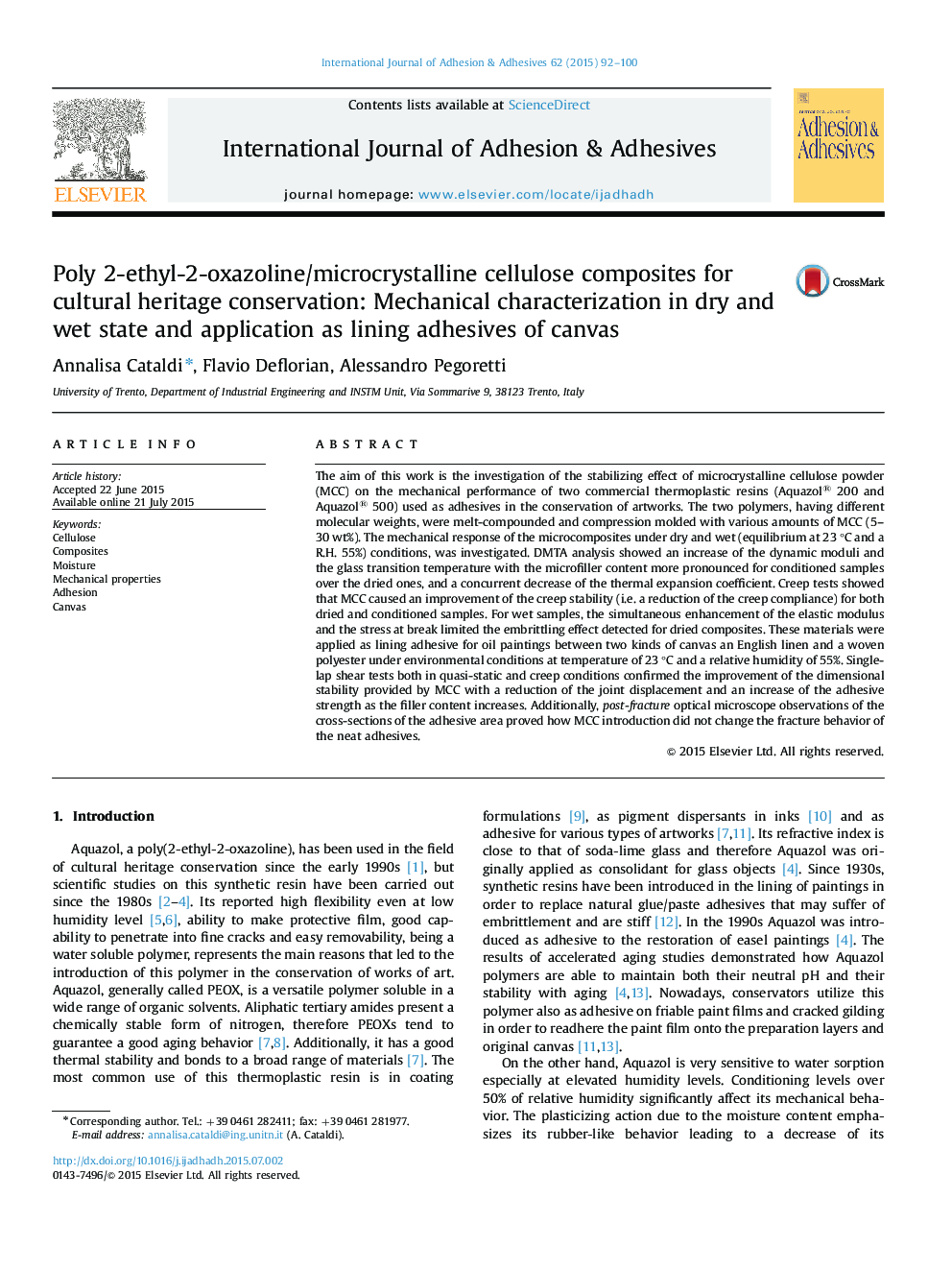| Article ID | Journal | Published Year | Pages | File Type |
|---|---|---|---|---|
| 7171107 | International Journal of Adhesion and Adhesives | 2015 | 9 Pages |
Abstract
The aim of this work is the investigation of the stabilizing effect of microcrystalline cellulose powder (MCC) on the mechanical performance of two commercial thermoplastic resins (Aquazol® 200 and Aquazol® 500) used as adhesives in the conservation of artworks. The two polymers, having different molecular weights, were melt-compounded and compression molded with various amounts of MCC (5-30 wt%). The mechanical response of the microcomposites under dry and wet (equilibrium at 23 °C and a R.H. 55%) conditions, was investigated. DMTA analysis showed an increase of the dynamic moduli and the glass transition temperature with the microfiller content more pronounced for conditioned samples over the dried ones, and a concurrent decrease of the thermal expansion coefficient. Creep tests showed that MCC caused an improvement of the creep stability (i.e. a reduction of the creep compliance) for both dried and conditioned samples. For wet samples, the simultaneous enhancement of the elastic modulus and the stress at break limited the embrittling effect detected for dried composites. These materials were applied as lining adhesive for oil paintings between two kinds of canvas an English linen and a woven polyester under environmental conditions at temperature of 23 °C and a relative humidity of 55%. Single-lap shear tests both in quasi-static and creep conditions confirmed the improvement of the dimensional stability provided by MCC with a reduction of the joint displacement and an increase of the adhesive strength as the filler content increases. Additionally, post-fracture optical microscope observations of the cross-sections of the adhesive area proved how MCC introduction did not change the fracture behavior of the neat adhesives.
Related Topics
Physical Sciences and Engineering
Engineering
Mechanical Engineering
Authors
Annalisa Cataldi, Flavio Deflorian, Alessandro Pegoretti,
